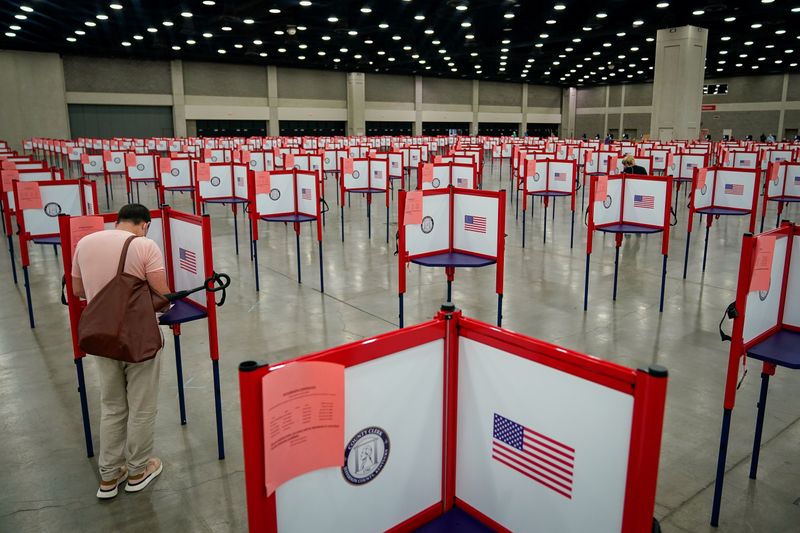(Reuters) - Nine Republican candidates have qualified for the party's debates so far as they jostle to be the presidential nominee for the 2024 election, while President Joe Biden faces little opposition in the Democratic Party.
Here is a timeline of events related to the Nov. 5, 2024, election between now and Inauguration Day.
2023
Nov. 8: The third Republican debate will be hosted by NBC in Miami. Criteria to participate will be tougher than the second debate and include rules related to opinion polling and fundraising.
2024
Jan. 15: Republicans in Iowa hold their nominating contests, known as caucuses, the first of this election cycle. Caucuses are private meetings organized at the county, precinct or district level where participants divide into groups according to the candidate they support, determining how many delegates each candidate receives.
Democrats in Iowa plan to hold their in-person caucuses on the same day but will not release the results until March 5.
Jan. 23: Tentative date of the first Republican presidential primary election, to be held in New Hampshire. Primaries are run by state and local governments, and participants vote for their preferred candidate in a secret ballot.
Jan. 31: Federal Election Commission 2023 year-end filing deadline for candidates to declare the money they have raised and spent.
Feb. 3: First Democratic presidential primary, to be held in South Carolina.
Feb. 6: Democratic primary in Nevada.
Feb. 6: Three of the top Republican hopefuls - Nikki Haley, Tim Scott and Mike Pence - have filed to take part in the Nevada state-run primary, two days ahead of the Republican Party's caucuses in the state.
Feb. 6: Tentative date for New Hampshire Democrats to vote in their primary.
Feb. 8: Nevada caucuses for Republicans.
Feb. 24: South Carolina Republican primary.
Feb. 27: Democratic primary in Michigan.
March 5: Known as Super Tuesday, this is the biggest single day of primaries and often helps whittle down the field of candidates. Both parties hold them in Alabama, Arkansas, California, Colorado, Maine, Massachusetts, Minnesota, North Carolina, Oklahoma, Tennessee, Texas, Vermont and Virginia.
Democrats in Utah will also vote in their primary while Republicans hold their caucuses in the state. Republicans in Alaska vote in their primary.
March 12: Primaries held in the states of Georgia, Mississippi and Washington. Republicans in Hawaii hold caucuses.
March 19: Primaries held in Arizona, Florida, Illinois, Kansas and Ohio.
June 4: The final states to hold their presidential primaries are scheduled to do so on this date. Some states have not yet set their primary or caucus dates.
July 15-18: Republican National Convention in Milwaukee, where the party formally chooses its candidate.
Aug. 19-22: Democratic National Convention in Chicago, where the party formally chooses its candidate.
Nov. 5: Election Day
Later in November: It could take days for the election result to be known, especially if it is close and mail-in ballots are a factor.
2025
Jan. 20: The inauguration of the election winner and their vice president takes place. At this ceremony, the victor is officially sworn in and takes office.
